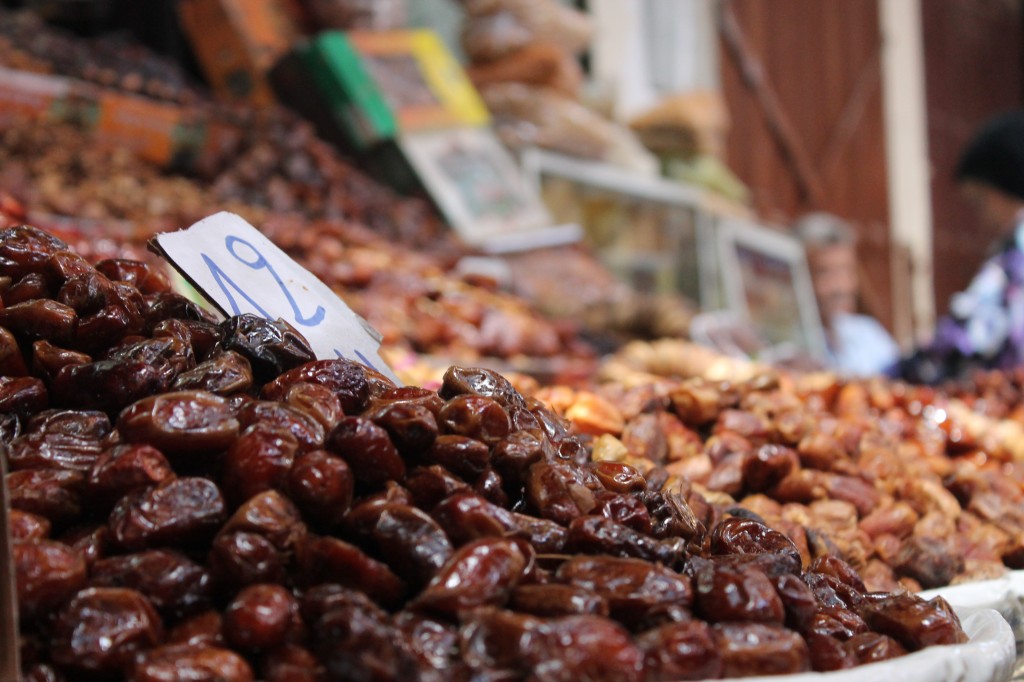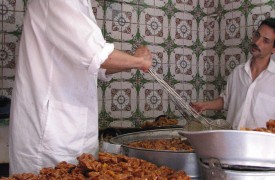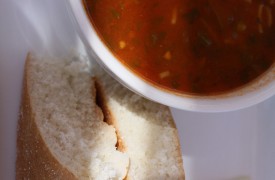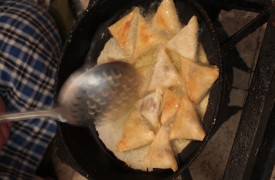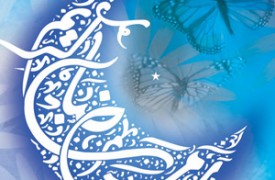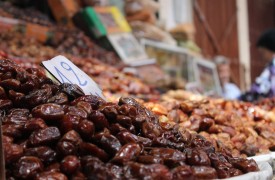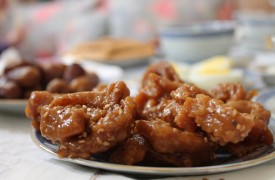Ramadan is the 9th month of the “Islamic calender” or “Hijri calender” that is the lunar calender based on the cycle of the lunar phase.
During the holy month of Ramadan, Muslims worldwide observe this month as a month of fasting. Most of Muslims fast from The call of “Fajr prayer” or “Dawn prayer” that marks the beginning of the obligatory daily fasting to sunset. This ritual fast or “Sawm” is one of the five pillars of Islam and requires that each one refrain from eating, drinking, smoking, and engaging in sexual relations.
Fasting is a “Fardh” obligatory for adults Muslims, except those who are ill, travelling, pregnant, diabetic or going through menstrual bleeding. Before children reach puberty they are always willing to fast one day or two days to practice the fast like adults.
Each day before sunrise, everyone has the “Suhoor” or “predawn meal”, and since the “Suhoor” is intended to last one throughout the day, it tends to be a heavy and hearty meal. The family sit together to share the ” predawn meal” . At the “Fajr prayer” that is the first of the five daily prayers, people go to the mosque to pray.
In Morocco, people carry on their normal activities but the schedules change. Businesses don’t open until 10 am and they stay open straight until 4 pm. By 6pm most people are at home and the streets are bare – the city is silent. Everything is closed except for a few restaurants hoping to attract tourists.
At sunset, family and friends gather for “Futur meal” which is the meal eaten by Muslims to break the fast and marked through out the cities by the boom from canons which signify that it’s almost time for the Maghrib call to prayer when they will be able to break the fast for the day. Many people start with 3 dates and milk because in the Hadith literature: “The Messenger of Allah would break his fast with ripe dates before he would pray. If those were not available, he would eat dried dates. If those were not available, he would drink some water.”
The prophet used to break the fast with dates and that’s what the Muslim do. Eating dates first help the body start its digestive process and gives it the energy to deal with the secondary, more complex foods because once the Muslims break their fast with dates, the sugar travels quickly to the liver , where they are converted into energy more quickly than any other nutrients.
Here are some of the recipes of the Moroccan traditional Futur:
* “Halwa Chebakia” : It is a Moroccan sesame cookie which is folded into a flower shape, fried and then coated with honey. It’s very popular in Ramadan, and is also served for special occasions.
* “Harira”: Morocco’s famous lentil and tomato soup. Although eaten year round, it’s especially popular in Ramadan, when many families serve it daily to break the fast. A bowl of “Harira” gives energy to the body because it is packed with carbs, vitamins, and proteins. The soup is easy for your body to absorb after a long day of fasting and has a lot of water to hydrate you.
* “Sellou“: It is a unique Moroccan sweet made from toasted sesames, fried almonds and flour that has been browned in the oven. It is traditionally served in Ramadan and for special occasions.”: It is traditionally served in Ramadan and for special occasions.
* ” Almonds Briwat“: These popular Moroccan cookies are made by folding almond paste flavored with orange flower water and cinnamon within Warga dough. The pastries are fried and then soaked briefly in honey. Almond Briouats are commonly served at both special occasions and casual tea times.
* “Petit Pain au Chocolat“: These French pastries are popular in Morocco, and made by wrapping bittersweet chocolate in croissant pastry dough. Although widely available at bakeries, the very best are homemade. They can be frozen and reheated in the oven at serving time.
Other foods popular during Ramadan Futur are hard-boiled eggs, fruit juices or milk shakes.
In addition to fasting one of the reasons why Muslims fast is to discipline their body and mind. The absence of food and drink and other pleasures provides a perfect opportunity to concentrate on prayer and worship and additional learning of the Qua ran.
Ramadan is also about thinking about the poor people. Not eating and drinking encourage Muslims to remember that there are people starving to death in the world and many Muslims at this time tend to donate to charities and gain greater regard for well intentioned actions.
Ramadan is the blessed month because it brings people together and encourage people to forgive each other.

